-

Erin Donahue -

Christina Barkanic -

Brittany Trott -

Emily Wiley -

Jessica Reilley -

Chris Raines -

Will Nichols -

Emily Reddy -

Michele Marchetti -

Michele Frank -

James Gherardi -

Kit Henshaw -

Christina and Erin -

Kim Tait -

Erin McKinney -

Steve Spanelli -

Sam Komlenic -

Katherine Taylor Grofic -

James Eisenstein -

Jamie Oberdick -

Anna Lombardo -

LacCreta Holland -

Tony Ricci -

Local Food Journey -

Laura Young -

Kristin Camplese -

Harrison's Fresh + Local -

Danielle Matalonis -

Kristine A. -

Linda Weaver -

Naomi Elle Schwartz -

Dana Stuchul -

Cara McShane -

Brittany Smith -

Jessica Illuzzi - Frosty
-

Jessica Paholsky -

James Sechrengost -

Brad Yeckley -

Maya Althouse -

Jordan Reabold -

Kim Chase -

Maria Bryant - Alexandrea Scott
At the Dinner Table with French Penn State Graduate Student Sandra Rosseau
Posted by Jamie Oberdick on 05/02, 2013 at 08:59 AM

Sandra Rosseau
Editor’s note: At the Dinner Table is a new series on Local Food Journey. The concept behind this feature is a type of conversation you might have at dinner with a friend. I am sure many of you have talked local food at dinner, while having local food on the table (how meta is that?), so this series will feature members of the local community talking about local food and the role it plays in their lives. This is the first in the series, and in this inaugural At the Dinner Table I talked to Sandra Rosseau, a PhD student at Penn State from France. She came to Penn State in 2007. Her research interests now focus on the roles that humor plays in the context of Franco-Algerian memory. In her free time, she enjoys music, photography, and as you will soon see, cooking.
Is eating local food important to the French?
I haven’t lived in France for several years now so I do not know how the local food trend has impacted French habits. But the whole idea of why you have markets in town and cities in France was that you would eat local, and most importantly to the French, I think, you would eat what’s in season (although both eating local and in season are related).Many people regardless of their age and their social class go to the market to shop for fruits and vegetables and sometimes for meat and cheeses.
- What is the local food scene like in France? As in, are there a lot of markets with local farmers, local cheese, etc.?
Local food is essential to the French because it is a way for them to define their identities. Different regions have different signature dishes based on their most famous products. We have what we call “terroir” which does not really translate to English, but it is a mix of what the soil will give you (terre is earth or soil in French) with the traditions of a specifically defined location. Each region has its own “terroir.” You might find that word to describe wines, but it is also true of cheeses, vegetables and other food.
Most markets carry mainly local food, the small ones certainly do, and that is more and more the case as eating organic is becoming more common. In some way it makes no sense to me to eat organic bananas for example, because their transportation is not green.
All regions of France have their culinary specialties, their specific cuisine based on local produce and products. For example, the Alligot of the Auvergne and Cevenes region can only be made with a certain type of fresh cheese, and it will be hard to find it outside of these regions.
I would add that it is common for people, especially older people, to stick to the cuisine of their regions. If you live on the shore of Brittany, it’s unlikely you are going to eat cheese-based dishes on an everyday basis, and I think it’s mainly because the real “authentic” cheeses of the Alps regions will not be available. Although you will find the industrial versions of these cheeses in the big supermarkets.
- What are some favorite foods local to central PA that you have discovered?
Not being from PA originally, I am never sure if the food I get at the market is grown in PA or originally a PA products. I love the goat cheese from the Byler goat dairy. I also ate beet greens, okra, and collard greens for the first time this winter and loved their green goodness! Finally I was and continue to be impressed at the selection of squash we can find on local markets. I have a sweet spot for the blue hubbard and the buttercup squash…but I never make pies out of them as I do not like sweet squash.
- What are some favorite places to buy local foods?
I like the markets, my favorite is the market at the Home Depot. I usually try to buy local at the grocery stores when I can, Weis market can have some good local products.
- Do you incorporate local foods into traditional French food that you make at home, and if so, do you have a recipe to share?
I use all the local food I get in my cooking, which is mostly French cooking. You could make wonderful ratatouille with the summer vegetables. I have added kale and collard greens to Vichyssoise, I have made wonderful basil and strawberry salads from the local markets.
An easy recipe you can make with local cheese is “michon”, it is a specialty from a tiny village in the Jura Region (borders Switzerland). It’s originally made with comte cheese but you can make it with any sharp cheddar whether goat or cow. The cheese you can find at the Boalsburg market or the Byler gouda or cheddar would work perfect for this.
It’s really easy:
Cube the cheese (1/2 inch), weigh your cheese, mix in the same weight of flour and water. Add salt, pepper and any herb you might have (sage, parsley, thyme, sorrel). Once it’s all mixed either fry or bake in a lightly oiled pan. It will probably need to cook several minutes on both sides, just like a pancake, you will see when its cooked (I like the second option better as it is less fat). Eat with a salad in which you can add some herbs and apples.

The finished product, made by Sandra
![]() Author: Jamie Oberdick
Author: Jamie Oberdick
Bio: Editor, Local Food Journey | Passionate about supporting local food in Central PA
- Our Local Food Journey comes to an end
- Winter isn’t a quiet time at the farm
- Get the taste of garden season right now by growing herbs indoors
- All you need to know about PASA’s Farming for the Future conference


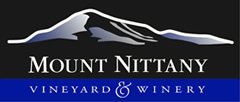
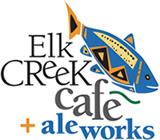
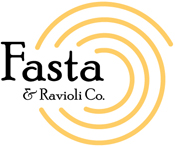

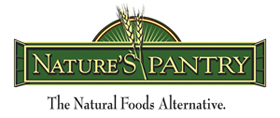
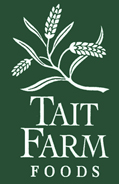

NO COMMENTS